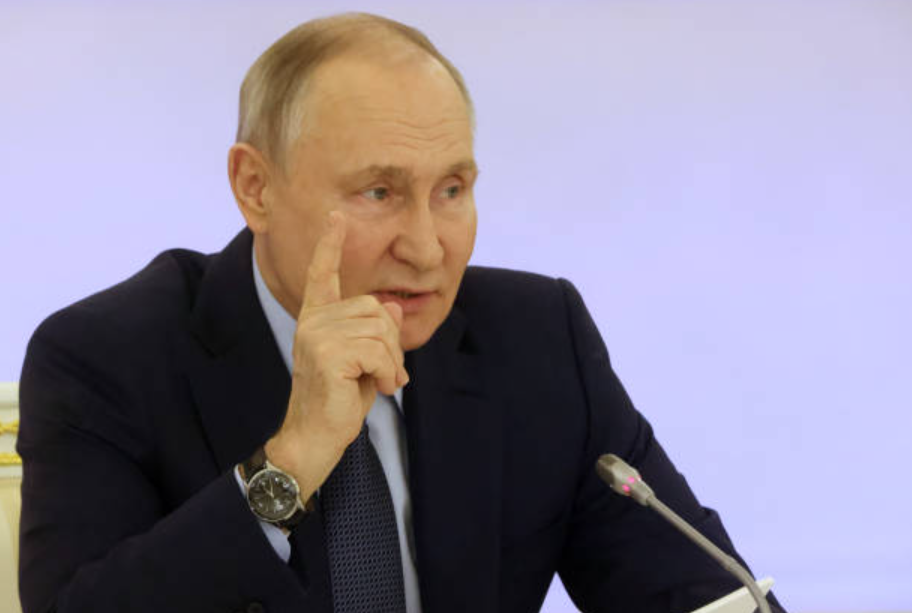Putin’s narrative about the invasion of Ukraine, initially framed as a mission to de-nazify the Kyiv government, now unravels amidst the harsh truth of failure.
Struggling to rationalize the protracted conflict to his disillusioned populace, Putin is fervently reshaping the narrative, framing it as a perpetual battle against the West.
Putin’s grip on authority is evident from the shifts in his rhetoric, indicating a leader determined to maintain control and influence, as observed through the evolution of his language and messaging over the years.
Putin’s narrative acrobatics indicate a desperate attempt to find resonance among his people, as evidenced by his demonization of the Ukrainian government as Nazis despite President Volodymyr Zelensky’s Jewish heritage, his characterization of the war as a holy crusade against the forces of Satan, and its final transformation into Russia’s eternal ideological struggle.
However, analysts from the Institute for the Study of War see through Putin’s words. His rhetoric isn’t a sign of resolution but a ploy to perpetuate a state of perpetual conflict.
Putin’s Perpetual Defense Against the West

This tactic is used to legitimize the high cost of war and support an ongoing military build-up. It appears that Putin’s goal is to establish a siege mentality in Russia by making the country constantly on the defensive against the West. It goes beyond a simple language makeover in this story.
According to Andrei Kolesnikov of the Carnegie Endowment, Putin seeks to legitimize his totalitarian government through an embrace of traditional spiritual and moral values, aiming to sway public opinion in Russia.
Despite the soaring casualties, estimated at over 315,000 by a declassified US intelligence report, Putin is projecting confidence, bolstered by support from allies like China and North Korea, along with a divided stance within the US Republican Party regarding Ukrainian rearmament.
In a display of perceived strength, Putin proudly declared an additional 486,000 recruits enlisted in the Russian army in 2023. This consolidation of power seems aimed at perpetuating the Kremlin’s control, even amidst growing discontent about the unpopular war among Russian citizens.
As Putin maneuvers to uphold his regime’s grip, the war’s narrative evolves into a tale of ideological struggle reshaped into a defense against a perennial Western threat. Putin’s desperate spin might be losing its former luster, but its influence over Russia’s political landscape remains ominous.


Comments are closed.